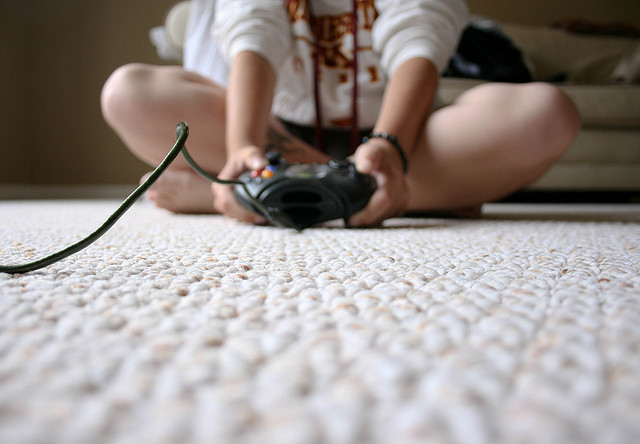An hour a day keeps the doctor away.
A new study featured in the August volume of Pediatrics suggests that playing video games for an hour a day is positively related to a child’s social adjustment, happiness, as well as a reduction in hyperactivity. In this study of almost 5000 children, Andrew Przybylski, PhD compared a group of “non-players” to 3 other groups of children that spent differing amounts of time playing video games. According to Przybylski, “an hour a day keeps the doctor away.”
The study used a self-report survey in which 2436 males and 2463 females, ages 10-15, were surveyed. In addition to measures of electronic game engagement, subjects were also provided with self-report items to assess personal strengths and weaknesses, prosocial behavior, and life satisfaction.
One of the most interesting findings of the study was the comparison of “light” players, those who played regularly for less than one hour a day, to children who did not play at all. The data suggests that “light” players displayed stronger scores on measures of prosocial behavior, life satisfaction and healthier levels of psychological adjustment. Children who play from 1 to 3 hours daily did not display any differences when compared to the non-players, while heavy players — those who played for more than three hours a day — reported higher levels of psychological distress and lower levels of prosocial behavior and life satisfaction.
Approximately 50% of young people today fall into the category of “light” players who engage with video games for one hour or less per day. Przybylski hypothesizes that the benefits of this modest amount of video game play are due to a variety of reasons, and he notes that this moderate video game play does not eliminate the need for other rich developmental opportunities that can occur via different forms of play. However, Przybylski asserts that video gaming at low levels might display some of the benefits of laboratory-based video game research that shows how game play is related to improvements in prosocial behavior, creativity, self-concept, social connectedness, executive control, attention skills, and visual spatial abilities.
[cjphs_content_placeholder id=”73593″ random=”no” ]Approximately 33% of young people play between 1 and 3 hours per day, yet children belonging to this demographic did not display any differences in their performance on measures of prosocial behavior, life satisfaction, and mental-health adjustment compared to the non-players in this study. Przybylski posits that moderate levels of video game play may produce some of the positive benefits of video game play observed in light players but also increases levels of hyperactivity, hostile attributions and cognitions, and desensitization to risky behavior that has been observed in laboratory-based video game research.
Children characterized as heavy users (more than 3 hours of video game play per day) reported higher levels of psychological distress and lower levels of prosocial behavior and life satisfaction when compared to the non-players. Approximately 10-15% of young people invest more than half of their daily free time playing video games. Przybylski hypothesized that this excessive level of video game play causes them to to miss out on important developmental opportunities and therefore presents a greater risk for encountering the negative side effects of video game immersion, negating the potential upsides of gaming.
From my perspective as a child clinical psychologist, these findings make a great deal of sense. In my experience, kids who don’t play video games or engage in social media (though the latter was not measured in this study) are likely to be disengaged from typical pre-teen and teen activities. Given that 97% of all teenagers play video games on some occasion during their free time, some level of game play gives them an opportunity to share experiences with others and to play socially as well. There is now compelling evidence that many types of game play can encourage learning, and this study suggests that modest levels of play facilitate the benefits of video game play, such as improved processing speed, prosocial behavior, visuospatial abilities, and attention skills.
Light video game play is exactly what would be prescribed as part of a healthy play diet for a teenager. A balanced play diet in which video games are a small portion (in this case approximately one third) of a child’s leisure time activities fits very well with our recommendations at LearningWorks for Kids.
To learn more about healthy play diets and how much time your child should spend playing video games, read the other articles in this series. If you want to know even more, check out my newest book, Playing Smarter in a Digital World.
Other Posts in this Series:
Part 3: Anytime, Anything, Anyplace
Part 4: After Their Homework is Done
Part 5: Educational Games Only
Part 6: Just Like Any Other Activity






I find it interesting that you said that letting kids play video games for an hour can help improve their happiness and reduce their hyperactivity. Speaking of kids, it reminded me of my aunt, who is having a hard time keeping her kids behaved during winter break. Reading your article inspired me to find video games for her so that she can keep the kids preoccupied. Also, it can help teach them about competition and camaraderie as well.
yes it good
that really interesting as gaming can help kids to relieve there stress in the best way,